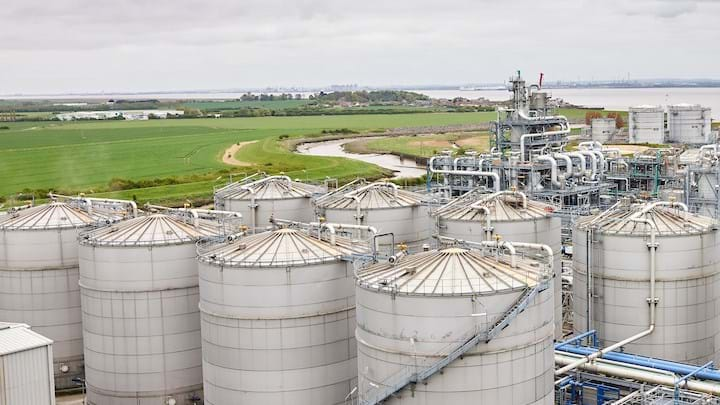UK’s largest bioethanol plant to wind up operations next week if no state support confirmed

THE LARGEST producer of bioethanol in the UK could “begin the process of closure” next week if it does not receive any state support, the plant’s operator has warned.
Vivergo Fuels, wholly owned by Associated British Foods (ABF), has said it will stop buying feedstock by 16 June if there is no response from the government to the company’s requests for support, which it says it needs after the US-UK trade deal was signed in May. It could impact up to 4,000 people working at local farms whose wheat Vivergo uses to manufacture ethanol, as well as the 160 workers at the plant at the Saltend Chemicals Park in Hull, UK.
Vivergo’s bioethanol is mostly used in E10 petrol blends, while byproducts are used for high protein feed for around 20% of cows grazed in the UK.
Giving evidence to the Business and Trade Committee in parliament last week, ABF Sugar CEO Paul Kenward said that a “last-minute concession” in the UK-US trade deal to allow the US to export tariff-free ethanol to the UK “has triggered a full-blown crisis” in the industry.
The trade deal has yet to be implemented, with key details still undecided – and the entire trading landscape with the US could shift significantly following a recent trade court ruling blocking other tariffs announced by Donald Trump. Nonetheless, Vivergo told TCE that the company is “realistic that reopening the trade deal…is unlikely” and is instead asking for government support for domestic bioethanol production. With the previous 19% tariff on US ethanol removed as part of a deal to lift US tariffs on British cars and steel, UK producers are unlikely to compete with cheaper imports from the maize-rich US Midwest.
Kenward asked the government to support demand growth for bioethanol by increasing its proportion in E10 petrol from 10% to 15%. He also urged the government to introduce a “level regulatory playing field” with the US ethanol industry. Vivergo has said the industry will need “bridging support” over a “period of a couple of years” between any measures being implemented and their commercial impacts being realised.
Claire Wood, Vivergo’s lead process engineer, visited the Houses of Parliament last week with 34 colleagues to meet with MPs. Wood told TCE that it was “fantastic” that six out of the 10 MPs they approached had agreed to meet with them and that they were “keen to support” the plant. Jenny Sherrard, Vivergo’s communications manager overseeing a campaign to raise awareness of the company’s plight, said they are trying to make sure “Hull doesn’t become the loser in this whole situation”.
Andrew Dadson, a process engineer on a university placement at Vivergo, was also in Westminster last week. In a LinkedIn post he said: “We need the government to act now to reassure us of the industry’s importance and commit to support us in the short and long term to recreate demand for bioethanol in the UK.”
The government is yet to respond to Vivergo’s requests for support, and its position has not changed since issuing a statement in May that said: “We signed a deal with the US in the national interest to secure thousands of jobs across key sectors.
“We are now working closely with the industry to understand the impacts of the UK-US trade deal on the UK’s two bioethanol companies and are open to discussion over potential options for support.
“The business secretary has met members of the bioethanol sector and senior officials continue to consider what options may be available to support the impacted companies.”
Warm words
Graham Stuart, the Conservative MP for Beverley and Holderness – the constituency where Vivergo Fuels is based – visited the plant last week. Meeting with staff who travelled to Westminster, he said he was “fighting to save Vivergo”. Luke Campbell, the Reform UK mayor of Hull and East Yorkshire, is due to visit the site tomorrow and has said on Facebook that “removing tariffs on bioethanol risks flooding our market with cheap, subsidised US imports”.
Karl Turner, Labour MP for Hull East, also met with workers in Westminster last week. He said: “Vivergo plays a vital role in Hull’s economy and our national drive toward sustainability.
“I’ve already arranged a meeting with the secretary of state for business and trade, alongside Hull MPs and Vivergo, and I continue to raise the alarm in Westminster about the risks posed by the UK-US trade deal – particularly the threat from removing tariffs on US ethanol.
“Hull jobs and the future of UK renewables are worth fighting for – and I won’t stop until we get the protections we need.”
Recent Editions
Catch up on the latest news, views and jobs from The Chemical Engineer. Below are the four latest issues. View a wider selection of the archive from within the Magazine section of this site.




